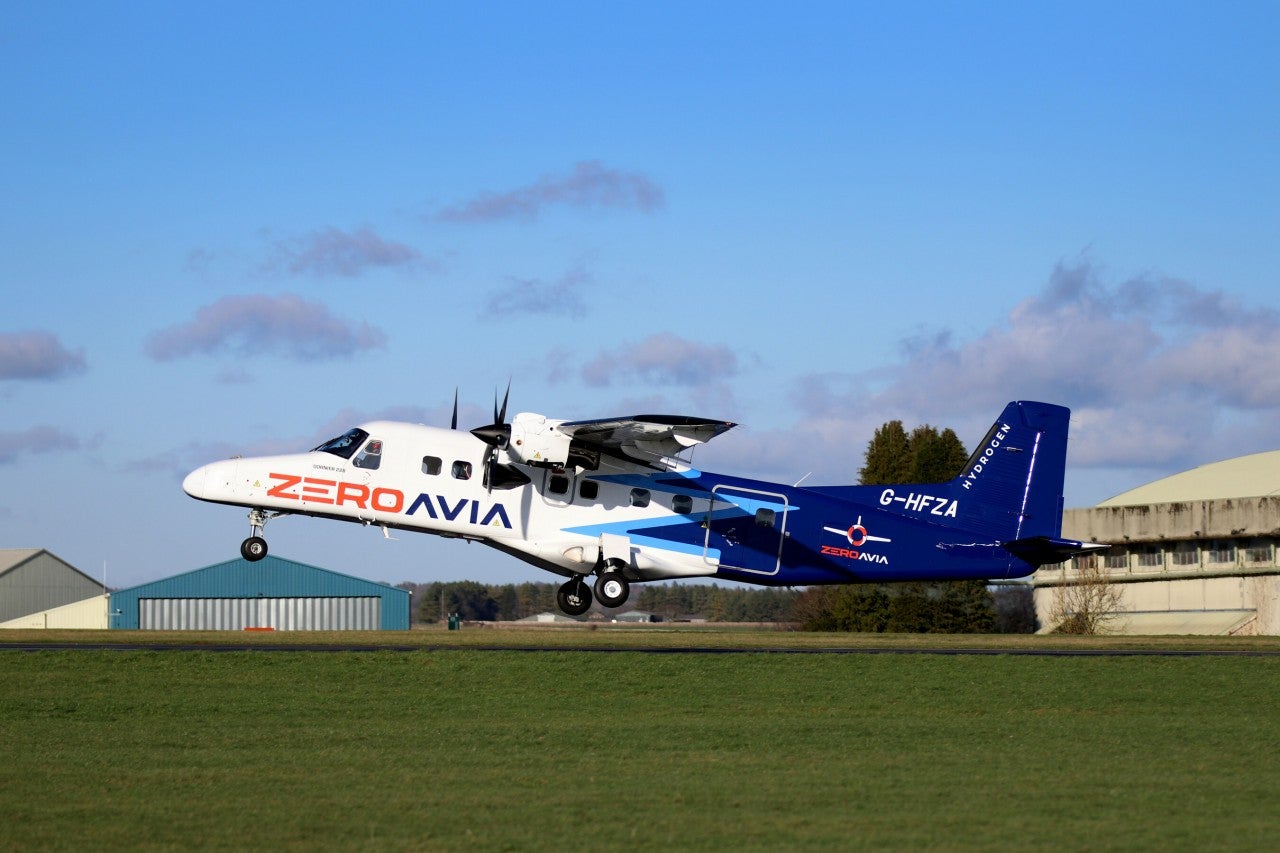
Hydrogen-electric aircraft maker ZeroAvia has joined forces with Shell, Rotterdam The Hague Airport and Rotterdam the Hague Innovation Airport on a decarbonisation initiative for airports.
The consortium will create a concept of operations for hydrogen in airports.
By the end of next year, the partners plan to operate demonstration flights to European destinations, with plans for commercial passenger flights by 2025.
This partnership builds on the pledge of cooperation announced last year to develop, what is claimed to be the first hydrogen-electric commercial flight.
The latest alliance aims to serve the first hydrogen flight from Rotterdam.
Among others, the partners will focus on operation at the airport, developing on-the-ground infrastructure for storage and distribution of hydrogen for aviation.
How well do you really know your competitors?
Access the most comprehensive Company Profiles on the market, powered by GlobalData. Save hours of research. Gain competitive edge.

Thank you!
Your download email will arrive shortly
Not ready to buy yet? Download a free sample
We are confident about the unique quality of our Company Profiles. However, we want you to make the most beneficial decision for your business, so we offer a free sample that you can download by submitting the below form
By GlobalDataThe partners will fuel ZeroAvia’s hydrogen-electric, zero-emission ZA600 engines with gaseous hydrogen.
They look to set up routes to European airports within 250 nautical mile radius of Rotterdam for the demonstration flights.
Shell will offer its technical capabilities to the project.
This collaboration comes a month after ZeroAvia operated a demonstration flight of a 19-seater plane, driven by the prototype ZA600 engine.
ZeroAvia infrastructure VP Arnab Chatterjee said: “Having this consortium, including Rotterdam The Hague Innovation Airport and Shell, moves the ball a significant distance down the field towards our goal line of commercial operations.
“Some first passengers on zero-emission flights in the world could be flying from Rotterdam. There is still a lot of work to do, but with clear milestones and targets identified, the hard work really starts now towards delivering the infrastructure and exploring the protocols and standards required.”
In a separate development, the UK Business and Transport Secretaries announced a £113m investment for the development of hydrogen and all-electric flight technologies.
Made through the Aerospace Technology Institute (ATI) Programme, the investment will support the development of lightweight batteries by electric aircraft maker Vertical Aerospace.
It will also support Rolls-Royce-led projects to develop a zero-emission liquid hydrogen combusting jet engine.
In addition, Virgin Atlantic secured funding to complete the first ever net-zero transatlantic flight using 100% SAF.


